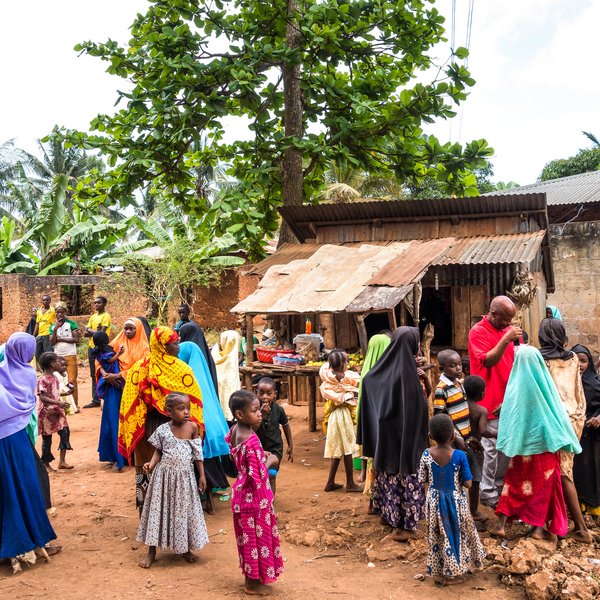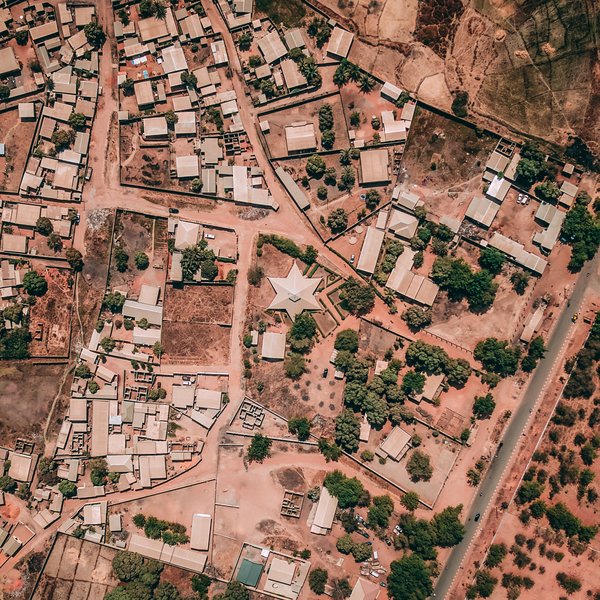EMBARGOED: 00:01 GMT 17 October 2018
1 in 4 people worry about losing their home, new data confirms
Global survey of perceptions of property rights could help provide solutions to key development challenges
The first official results from an international survey of how secure people feel in their homes and on their land were published today, revealing that in the initial 15 countries surveyed, 25% of citizens are concerned that their property could be taken away from them. This aligns with earlier findings from a pilot study in three countries.
Prindex, a joint initiative of the Global Land Alliance and Overseas Development Institute (ODI), is the result of over two years of research and development of methods to accurately measure perceptions, and will make a vital contribution to efforts to measure and address property rights insecurity and related issues, including via the United Nation’s Sustainable Development Goals.
The countries surveyed using the approved methodology were Burkina Faso, Cameroon, Costa Rica, Côte d’Ivoire, Ecuador, Honduras, Liberia, Madagascar, Mozambique, Namibia, Peru, Rwanda, Senegal, Thailand and Zambia. An additional 18 countries will be surveyed by the end of this year, and the project aims to cover over 100 countries by the end of 2019.
Findings from the first round of data collection and analysis include:
- Big differences in rates of tenure insecurity across the sample, with only 8% of respondents saying they felt insecure in Rwanda, compared to 44% in Burkina Faso
- The two most common reasons for feeling insecure were: ‘owner/renter may ask me to leave’ and ’family disagreements’
- Across all countries renters felt more tenure insecure than owners
- Across the 15 countries, there was not that much difference between men's and women's perceptions of tenure security. However, when respondents were asked how worried they were that they would be forced to leave in the event of divorce or spousal death, women were markedly more worried than men
- Younger respondents were on average, more insecure than older ones, with tenure insecurity being 10.5 percentage points higher for 18-24 year olds than for those aged 55+ across the 15 countries
- In just over half of the countries, respondents in urban areas reported tenure insecurity rates that were between two and 10 percentage points higher than in rural areas
- In a similar proportion of countries, those with formal documentation reported feeling more secure than those without.
Anna Locke, Head the Agricultural Development and Policy Programme at ODI and Co-Director of Prindex said: “What our results show is that a staggering 41 million people in the countries surveyed think that it is likely or very likely that they will lose the right to use their property in the next five years. This will affect the way they behave, and their countries’ overall development prospects.”
Malcolm Childress, Co-Executive Director of the Global Land Alliance and Co-Director of Prindex said: “Measuring perceptions gives us a much more nuanced picture of property rights. In some countries a legal title might be a reliable source of tenure security, whereas in others it might be meaningless if the government can revoke it at a moment’s notice. In others still, traditional systems of property rights may provide security even without legal documentation. By asking how people feel about their property rights, we get an insight into how they might behave, and the broader obstacles to investment and economic development.”
To date, the lack of global and comparative data has prevented policymakers, academics, businesses and others from understanding the scale and nature of tenure insecurity and knowing how to improve it. By measuring perceptions of land and property rights security, Prindex seeks to close this gap and help address this pressing development problem. Prindex is funded by Omidyar Network and the UK’s Department for International Development (DFID).
Peter Rabley, Venture Partner at Omidyar Network, said: “Prindex is truly groundbreaking as it asks people for the first time what they think about and want from property rights at a global scale, filling a critical data gap for governments, non-profits, social entrepreneurs, donors, and community leaders. We are excited to support Prindex as it continues to build its dataset, unlocking on-the-ground insights that will lead to better solutions for the myriad of issues tied to property rights—from social identification and inclusion to economic stability, environmental stewardship, and more.”
/ Ends
To receive an embargoed copy of the data in advance, a report summarising the findings, country-specific reports for each country surveyed, and / or to arrange interviews, contact: Amy Barry on [email protected], +44 7980 664397.
Notes to editors:
- Prindex will be discussed at a side event at the Food and Agriculture Organisation’s Committee for Food Security meeting in Rome on 18 October 2018. To register to attend contact Ana Lucia Nunez Lopez on [email protected].
- From 00:01GMT on 17 October the new Prindex website will go live, with interactive maps and graphs where you can explore the data, and from where it will also be possible to download the full dataset. Visit: www.prindex.devdemo.org.
- Prindex collects data on how citizens worldwide view the security of their right to retain use of their homes and other property, in order to encourage and empower governments, business, and civil society working to build a world where tenure rights are securely protected. For more information: www.prindex.devdemo.org.


